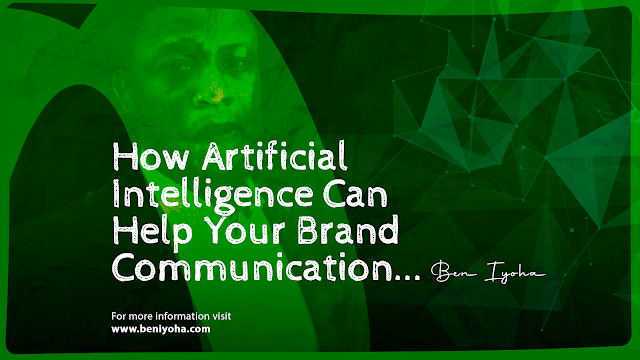Brand communications and AI are two interconnected concepts that play a significant role in modern marketing and customer engagement strategies. Brand communications refer to the strategic messaging and interactions that a company uses to connect with its target audience and convey its brand values, identity, and offerings. AI, or Artificial Intelligence, on the other hand, refers to the simulation of human intelligence in machines, enabling them to perform tasks that typically require human intelligence, such as learning, reasoning, problem-solving, and language understanding.
When combined, AI technologies can enhance and optimize various aspects of brand communications to create more personalized, efficient, and effective interactions with customers. Here are some ways in which AI impacts brand communications:
Let’s Explore the AI Solutions Available to Brands Today.
PERSONALIZATION:
AI can analyze vast amounts of data about individual customers' preferences, behavior, and interactions with a brand. This data allows companies to create highly personalized messages and offers tailored to each customer's needs and interests, enhancing the overall customer experience.
CHATBOTS AND VIRTUAL ASSISTANTS:
AI-powered chatbots and virtual assistants can provide instant customer support and address frequently asked questions. They offer a seamless and interactive communication channel, allowing brands to engage with customers in real time, 24/7.
CONTENT CREATION:
AI can be utilized to generate content, such as product descriptions, blog posts, and social media updates. While human creativity remains essential, AI can assist in generating content ideas, optimizing headlines, and even generating personalized messages based on customer data. Examples are Generative AI (visual & text).
SENTIMENT ANALYSIS:
AI can be used by brands to analyze customer feedback, reviews, and social media interactions to gauge sentiment accurately. Brands can use this information to understand their customers better, address concerns, and improve their offerings.
RECOMMENDATION SYSTEMS:
AI-driven recommendation engines can suggest products, services, or content based on customer preferences and behaviors. This not only enhances the customer experience but also increases cross-selling and upselling opportunities for the brand.
SOCIAL MEDIA MONITORING:
AI tools can monitor social media channels for brand mentions and conversations, allowing companies to respond quickly to customer feedback, manage their online reputation, and engage with their audience proactively.
VOICE SEARCH AND VIRTUAL ASSISTANTS:
With the rise of voice-activated devices and virtual assistants, brands need to optimize their content and communication strategies for voice-based search queries.
AUTOMATED ADVERTISING:
AI enables programmatic advertising, where algorithms help optimize ad placements and targeting based on customer data, increasing the effectiveness of advertising campaigns.
DATA ANALYSIS AND INSIGHTS:
AI can process and analyze large sets of data, providing brands with valuable insights into customer behavior, market trends, and campaign performance. This data-driven approach allows companies to make data-backed decisions in their communication strategies.
However, it's important to note that while AI can greatly enhance brand communications, it should complement human efforts rather than replace them entirely. A successful brand communication strategy will strike the right balance between AI automation and the human touch to create authentic and meaningful interactions with customers.








No comments:
Post a Comment